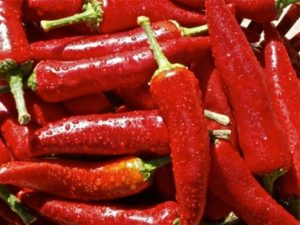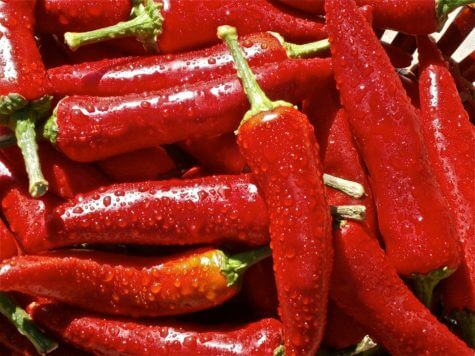DALLAS — Can’t resist that bag of potato chips or a few extra handfuls of salted peanuts? Add some pepper to your meals. A new study finds that eating spicy foods may increase one’s sensitivity to salt, consequently curbing cravings for high sodium food.
Researchers at Third Military Medical University in China conducted an experiment with 606 Chinese adults, asking whether they preferred their meals to be salty or spicy. Later, the blood pressure levels of participants were measured, and subsequently evaluated against their taste preferences.

Participants who indicated a strong affinity for spicy foods were found to not only consume less salt than those who liked them the least, but their systolic and diastolic blood pressure numbers were significantly lower.
Imaging techniques used to examine the brains of participants showed that areas associated with the perception of salty taste were also stimulated by tasting a spicy substance.
It is believed that this stimulation could help someone compensate for a relative lack of sodium intake.
While all of the study’s participants were of Chinese descent, its findings are fascinating to say the least.
“If you add some spices to your cooking, you can cook food that tastes good without using as much salt,” says Dr. Zhiming Zhu, the study’s senior author, in an American Heart Association news release. “Yes, habit and preference matter when it comes to spicy food, but even a small, gradual increase in spices in your food may have a health benefit.”
Previous research had found that capsaicin, the chemical that gives a spicy food its olfactory kick, enhanced how salty a food smelled, but this study went a step further by cementing the link between a food’s spiciness and one’s tendency to reduce salt consumption.
The researchers note that lowered blood pressure, in specific, decreases one’s risk for many diseases, such as heart attack and stroke.
The full study was published Tuesday in the journal Hypertension.

Did they control for differences in saltiness across regional cuisines? There may be a regional factor at play too, so it would be useful to look at the comparative saltiness of, for example, Cantonese (not spicy) vs. Sichuan (very spicy) cuisines. There is also the issue that Chinese tend to eat food with much less salt than Americans–so we may be talking about a smaller range between “not salty” and “salty” than in the U.S. (Although it’s worth considering that American “spicy” food is not usually that hot, by the standards of cultures that actually eat lots of spicy food.